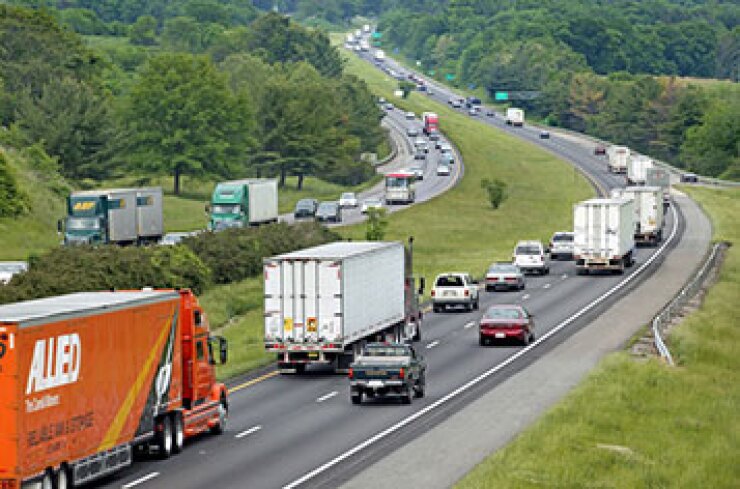Managed lane projects have recently outperformed expectations, though Fitch Ratings' decision to place a BBB rating on an upcoming issuance highlights how the short history of such projects hampers their credit strength.
Fitch on Monday assigned that BBB rating with a stable outlook to $264 million of senior lien private activity bonds to fund an extension to Virginia’s 95 Express Lanes. The series 2019 bonds will be issued by the Virginia Small Business Financing Authority on behalf of 95 Express Lanes LLC.
The so-called Fredricksburg Extension, 95 and 395 express lanes are part of that combined rating of BBB. The PABs are expected to sell via a negotiated sale on or about July 15.

The extension will provide two express lanes with full shoulders and will increase capacity during peak periods, allowing drivers to choose to pay for a faster trip if they wish. Construction is expected to begin later this year with it opening to traffic in fall 2022. In its rating report, Fitch wrote that the 95 express lanes have performed well since their operational start in December 2014, exceeding projections.
“The solid revenue out-performance stems from strong toll rates reflecting the project's affluent catchment area, high congestion levels, and significant time savings,” Fitch wrote.
Managed lanes’ short history makes it hard to tell if that financial performance will weaken because they haven’t gone through a recession, said Scott Monroe, director in Fitch's global infrastructure and project finance group. Fitch will have a better handle on volatility next time there is a recession, he added.
“There is the potential for some downside because we have relatively limited visibility on how these facilities will operate in a recession,” Monroe said. “We are already being quite conservative in our assumptions.”
However the one exception to Fitch’s rated managed lanes is the Orange County Transportation Authority SR 91 Express Lanes, which have been operational for 20 years. Fitch rates it at an A-plus, and is its highest rating on a managed lane, Monroe said.
During the Great Recession, OCTA saw about a 17% decline in traffic, Monroe said. OCTA was able to increase rates during that time, so revenues only fell by about 12%.
“Some people had feared that a traffic decline would be accompanied by a decline in prices,” Monroe said. “Well, that wasn’t the actual experience.”

Due to its long operating history, analysts could see how it performs in a recession, understanding its volatility and looking at its debt service coverage ratio.
“Challenges with most of the managed lanes that we rate, either they are untested by a recession because they operationally opened after the Great Recession or they’re under construction and they had no operating history at all,” Monroe said.
Fitch said last month that priced managed lanes like 95 Express have beaten projections overall. There are currently 51 priced-managed lanes in 11 states, according to the International Bridge, Tunnel and Turnpike Association.
Joseph Krist, partner at Court Street Group Research, said for a project like the Fredricksburg Extension a short history doesn’t matter.
“This should not be a tough credit for the market to understand and analyze or act on,” Krist said.
Investors are looking for places to spend their money, especially in mutual funds and so a short history doesn’t have an impact, Krist said.
“Ratings are all part of it, but people have a lot of things driving their decisions and that will continue to be the case whether if it's transportation specifically or munis across the board,” Krist said.
S&P Global Ratings also rated the bonds BBB, citing a strong demand for managed lanes and high congestion positives for the lanes. Some weaknesses could be the use of high-occupancy vehicles with three or more passengers that have been on the rise since the lanes opened. Those vehicles do not pay tolls.





